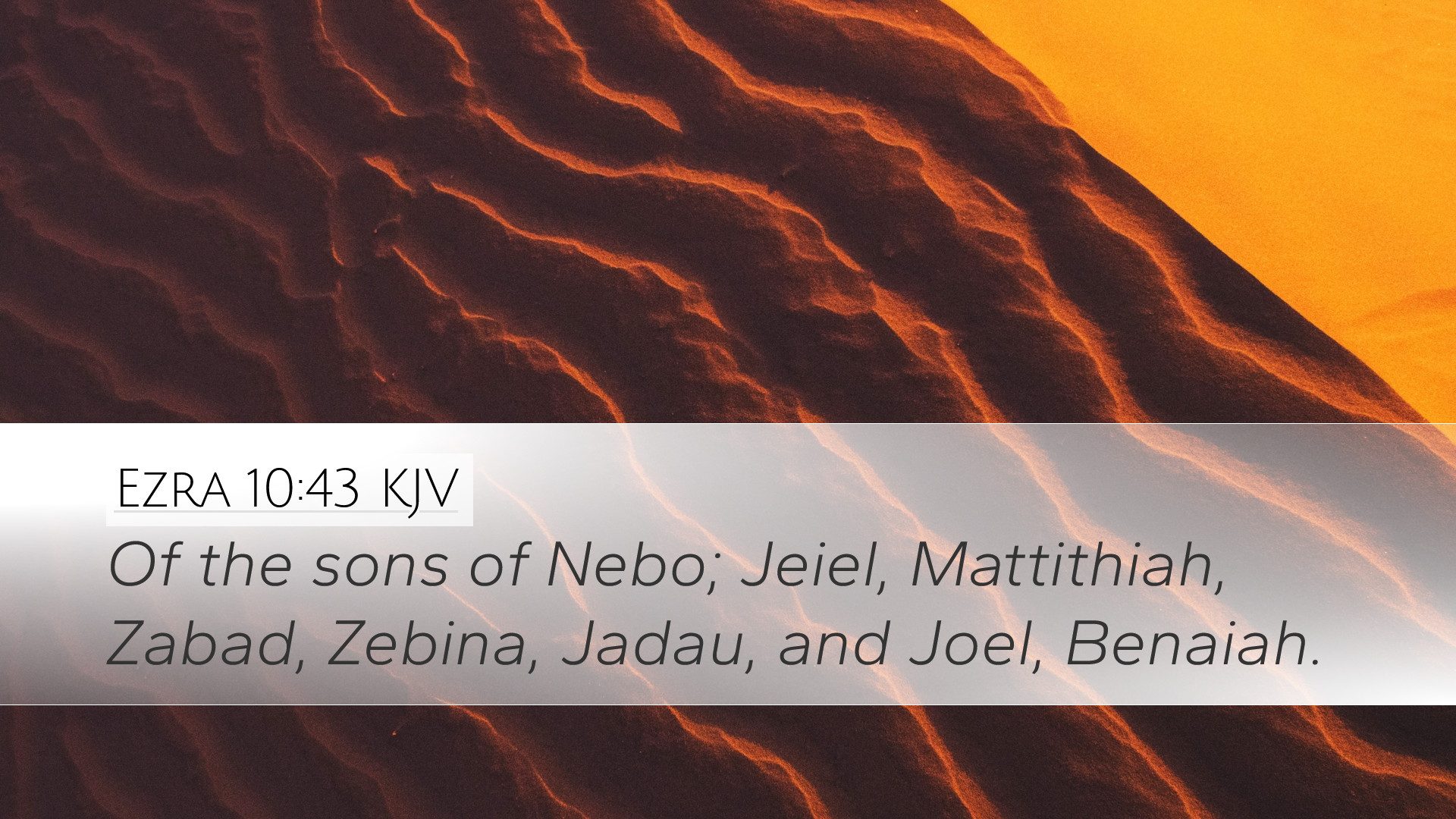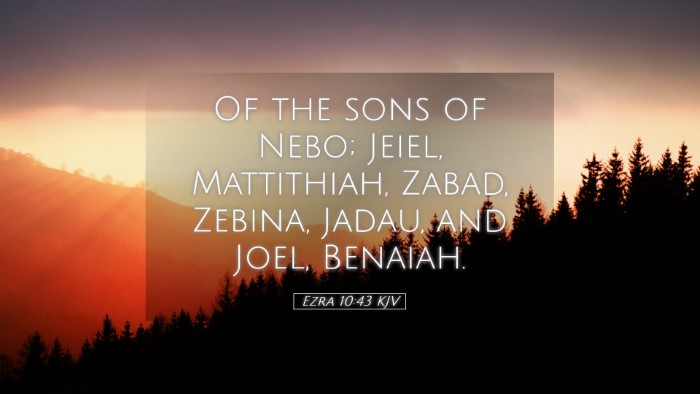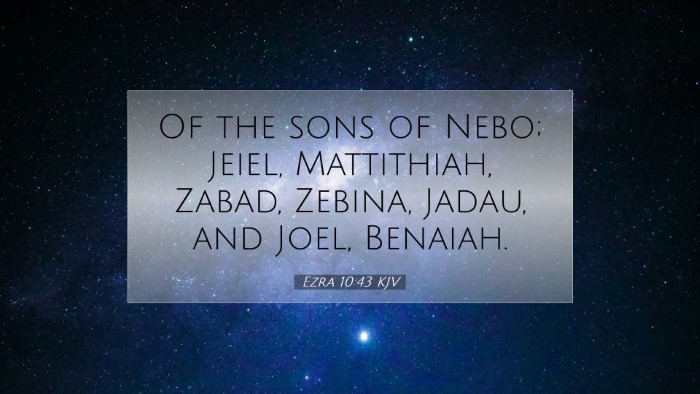Commentary on Ezra 10:43
Verse Text: "And of the sons of Bebai; Jehohanan, Hananiah, Zabbai, and Athlai, four." (Ezra 10:43)
Introduction
The verse under consideration, Ezra 10:43, presents a genealogy of the people who returned from exile. In this case, it refers specifically to the sons of Bebai, highlighting the importance of documenting the lineage of those who made significant decisions during the return journey to Jerusalem. The genealogical records serve as a testament to God's faithfulness and the restoration of His people. This commentary synthesizes insights from various public domain sources, including Matthew Henry, Albert Barnes, and Adam Clarke, making it meaningful for pastors, students, theologians, and Bible scholars.
Contextual Background
To understand Ezra 10:43 fully, it is essential to consider the broader context of Ezra's narrative. The book of Ezra chronicles the return of the Jewish exiles to Jerusalem and their efforts to rebuild the temple, emphasizing themes of restoration, repentance, and covenant faithfulness. In chapter 10, we find a critical moment in the history of Israel, where the returned exiles confronted the issue of intermarriage with foreign women, which posed a threat to their covenant identity.
- Historical Context: The historical setting involves the return from Babylonian exile approximately 538 B.C. The leadership of Zerubbabel and Ezra is pivotal during this transitional period.
- Thematic Elements: Genealogies are significant in biblical literature, underscoring God's covenant promises. The listing of the sons of Bebai can be interpreted as a reminder of God's provisions and the re-establishment of national identity.
Genealogical Significance
Matthew Henry emphasizes the importance of genealogies in Scripture as a divine record of lineage among the Israelites. Specifically, in Ezra, these genealogies not only authenticate the returning individuals' claim to Israel's heritage but also signify their role in the revitalization of worship and community life.
- Remembrance of God's Faithfulness: Each name listed, including Jehohanan, Hananiah, Zabbai, and Athlai, serves to remind the community of God's unbroken promises to His people.
- Identity and Belonging: This genealogical record asserts the identity of the returning exiles, fostering a sense of belonging among those who have returned to their homeland.
Specific Names and Their Implications
Albert Barnes provides insights into the specific names mentioned in this verse. Each name carries theological significance, reflecting attributes of God and the faithfulness that community members are called to embody.
- Jehohanan: Meaning "Jehovah has graciously given," symbolizes God's grace in restoring the people.
- Hananiah: Meaning "Jehovah has favored," further emphasizes the divine favor extended to the community.
- Zabbai: Perhaps meaning "my Zabbai," invokes personal accountability in one's relationship with God.
- Athlai: A less commonly discussed name which could symbolize God's support in tribulation, reminding the community of God's presence through difficulties.
Applications for Today
From a contemporary perspective, Ezra 10:43 offers rich insights for pastoral leadership, theological reflection, and personal devotion. Adam Clarke articulates the relevance of this verse for understanding individual and corporate responsibilities within the faith community.
- Importance of Heritage: Understanding our spiritual heritage can enhance communal worship and deepen individual faith.
- Community Responsibility: The collective identification with the covenant reinforces the idea that each member's actions impact the broader community's standing before God.
- Calling to Holiness: The historical confrontation with intermarriage serves as a call to holiness in our own lives, ensuring that believers maintain their distinct identity in a diverse world.
Conclusion
Ezra 10:43, while succinct, encapsulates profound theological and communal implications for readers and scholars alike. The genealogical references foster reflection on God's faithfulness, the importance of identity, and the responsibilities borne by those who seek to rebuild their spiritual lives in accordance with divine will. As pastors, students, theologians, and Bible scholars engage with this text, may they find in it a deeper understanding of God's ongoing work among His people and an encouragement to uphold the heritage entrusted to them.


